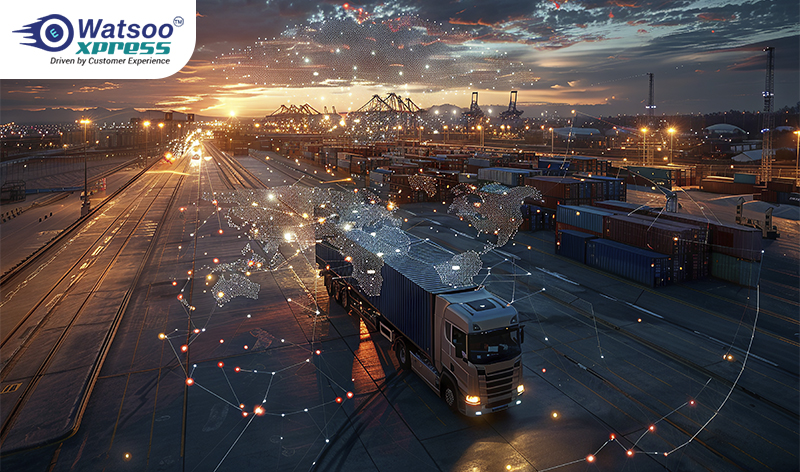We all know India’s logistics and transportation industry contributes 14.4% to the nation’s GDP. At the heart of this vital sector is the heavy-duty logistics industry. It crosses the country’s vast expanse, transporting goods and driving economic growth. However, these fleets face numerous challenges that can undermine efficiency, profitability, and safety. From crippling traffic congestion and rising fuel costs to cargo theft, the obstacles are formidable.
Fortunately, the advancement of telematics providers in India offers powerful solutions to tackle these pain points head-on. Let’s explore further in the blog that what are the top 6 challenges of the logistics industry in India and how we can overcome them.
Top 6 Challenges of the Logistics Industry in India (2025)
Traffic Congestion and Route Optimisation:
India’s urban centres are often clogged with severe traffic jams. Thus, it leads to significant delays and wasted fuel. According to a study, traffic congestion in major Indian cities costs the economy $22 billion annually. Finding the most efficient routes is crucial for timely deliveries and reducing environmental impact.
Fuel Costs:
With volatile fuel prices and the ever-increasing demand for transportation, managing fuel consumption has become a paramount concern for fleet operators. Fuel expenses can account for a significant portion of a fleet’s operating costs, directly impacting profitability. The Indian logistics industry spent an estimated $26.6 billion on fuel.
Vehicle Maintenance:
Proper maintenance is the cornerstone of ensuring vehicle longevity. If not maintained, it reduces breakdowns and minimises downtime. However, tracking maintenance needs for an entire fleet can be a complex and daunting task, especially for larger operations.
Driver Behaviour:
Unsafe driving practices, such as speeding, harshbraking, and excessive idling, increase the risk of accidents. Additionally, it contributes to higher fuel consumption and elevated maintenance expenses. A study revealed that road accidents claimed over 151,000 lives in 2019.
Cargo Security:
Theft of goods during transportation is a significant risk that can lead to substantial financial losses and disrupt supply chains. According to industry estimates, cargo theft costs Indian businesses approximately $60 billion annually.
Regulatory Compliance:
Adhering to government regulations, such as mandated vehicle tracking systems (VTS), AIS-140 standards is crucial. But it can also be challenging to manage manually, particularly for larger fleets.
The following is a summary of some of the main issues that India’s heavy-duty fleets are facing. But don’t worry, we have solutions for you thanks to the industry’s advancement in telematics.
How is Telematics Changing the Logistics Industry?
Amidst these challenges, telematics technology has emerged as a powerful ally for the heavy-duty logistics industry. By harnessing the power of real-time data, advanced analytics, and hassle-free communication systems, these solutions offer a comprehensive suite of tools. Therefore, it contributes to better operations, enhances efficiency, and drives cost savings.
Fleet Management Systems (FMS)
At the forefront of telematics solutions are Fleet Management Systems (FMS). These powerful platforms provide real-time tracking of vehicles, enabling fleet managers to monitor driver behaviour, manage maintenance schedules, and optimise routes. Therefore, it contributes to improved efficiency and reduced fuel consumption. FMS solutions can help fleets achieve fuel savings of up to 25%, according to industry estimates.
Vehicle Tracking Systems (VTS)
Mandated by the Indian government, Vehicle Tracking Systems (VTS) enable continuous tracking of commercial vehicles. It enhances safety and security while aiding in emergency response situations.
AIS-140 Standards
The Ministry of Road Transport and Highways introduced the AIS-140 standard, outlining specifications for vehicle tracking devices. It ensures interoperability and data accuracy across the industry. Compliance with this standard is essential for hassle-free integration of telematics solutions.
Load Sensors
By monitoring payload weight and distribution, advanced load sensors help prevent overloading. Further, it improves fuel efficiency and reduces wear and tear on vehicles. In a country where overloading is a pervasive issue, load sensors can play a pivotal role in ensuring compliance and prolonging vehicle lifespan.
Digital Locks
Advanced digital locking systems secure cargo during transportation, mitigating the risks of theft and providing real-time alerts for enhanced security. With cargo theft costing Indian businesses billions annually, digital locks offer a line of defence against this persistent threat.
Beyond these core solutions, telematics technology also encompasses features such as driver behaviour monitoring, real-time traffic updates, and predictive maintenance capabilities. All aimed at optimising fleet operations and minimising downtime.
Conclusion
India’s transportation sector continues its relentless growth trajectory, with the logistics market projected to reach $635 billion by 2025. And, adding telematics technology will be crucial for heavy-duty fleets to remain competitive, adaptable, and future-ready. By using the power of real-time data and advanced analytics, fleet operators can unlock a wealth of benefits. Moreover, including improved operational efficiency, reduced costs, enhanced safety, and better regulatory compliance.


